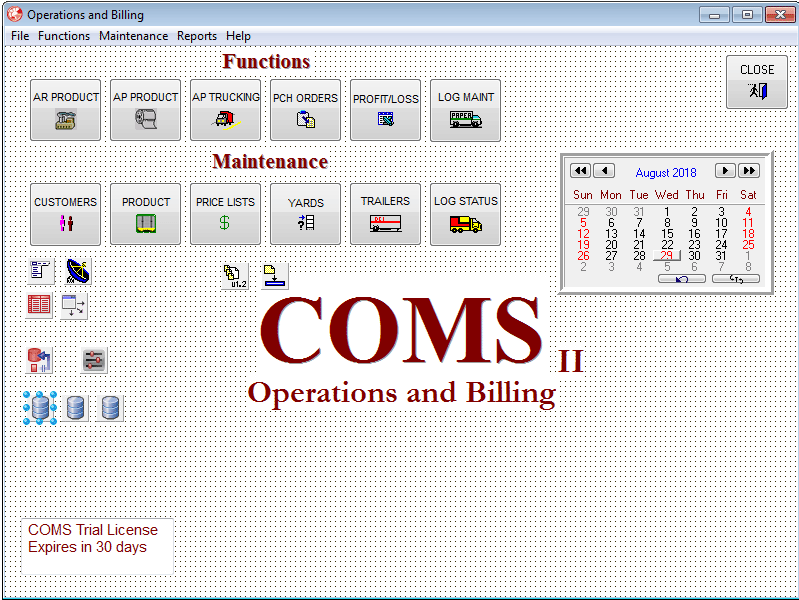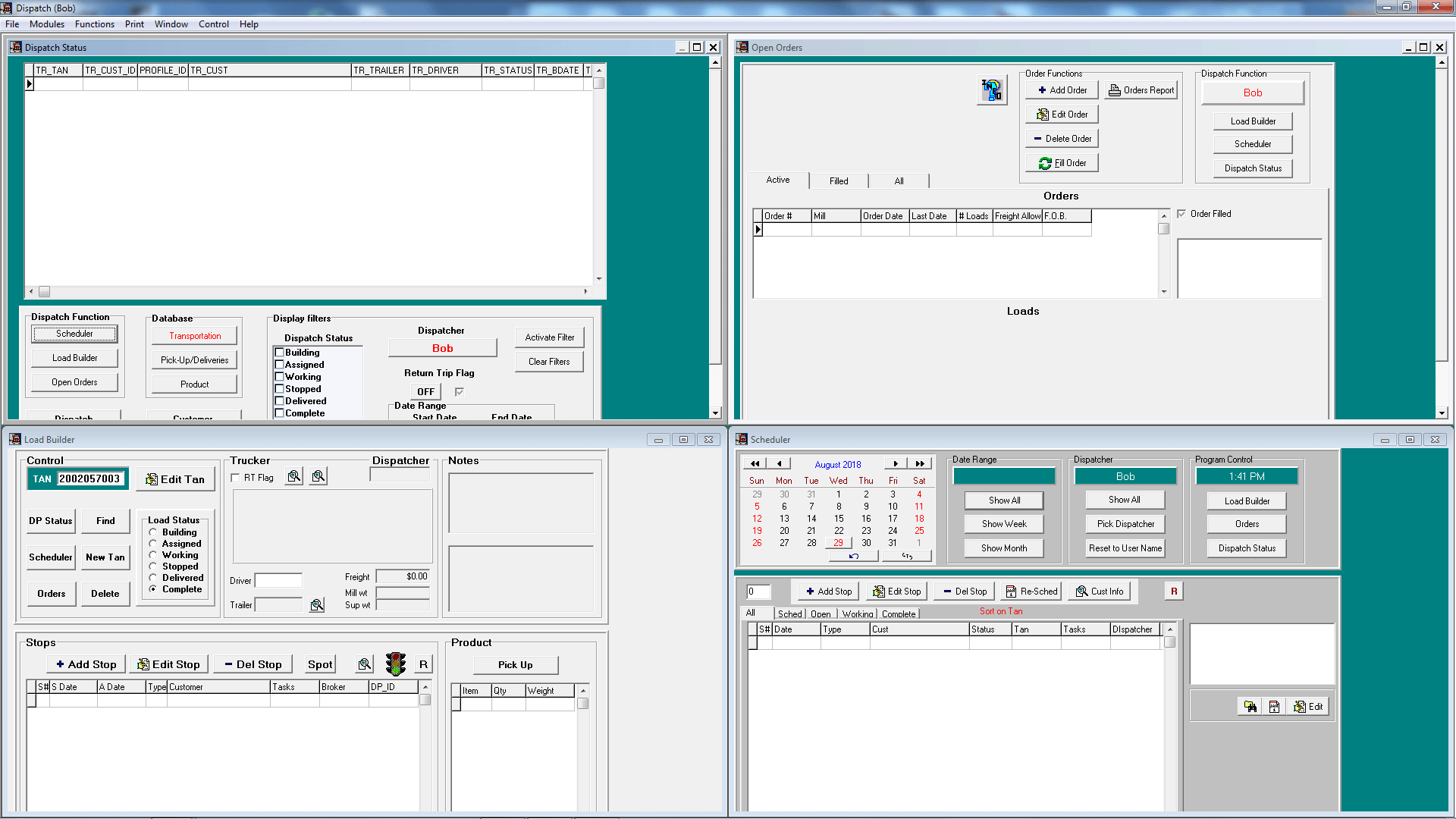

DISPATCH MODULE (DM):
DM is an independent program used by the dispatchers. It is called independent because it can operate alone without the rest of COMS operating and without SBT. Obviously, both of these softwares are needed at some point in time, but COMS dispatch can operate alone on a given computer. It provides facilities for scheduling, tracking, and managing the transportation of product. It also provides mechanisms to assign initial cost burdening of product. Dispatch produces the data elements necessary to invoice mills, to validate trucker and supplier bills, and to assist in determining the amount paid for products supplied by "in house" suppliers.
Its modules include:
Dispatch Scheduler (DS)
The DS provides a scratch pad where dispatchers can jot notes about a pickup or delivery that needs attention. DM provides facilities for the easy transformation of DS events into real pickups and deliveries.
Load Builder (LB)
The LB is the area in the DM where product is moved on and off a trailer. It is the job of the dispatcher to ensure that all changes to the contents of a trailer are noted in the LB. This allows COMS to have the data necessary to invoice and validate shipments. It also provides the structures necessary for burdening expenses against specific product shipments.
.
Main Status/Trucks in Motion
This module allows the dispatcher to monitor the status of all the shipments that are in progress at that time.
.
Open Orders (OO)
This module allows the specification and tracking of orders that need to be filled either from a mill or from a supplier. The OO module provides an alternative method of initiating dispatch activity
Trailer Status (TS)
TS accounts for the whereabouts of Company-owned trailers. Although there are screens that allow direct input of trailer location and status, TS deduces most of this information as a by-product of the normal flow of information through the system.
.
Maintenance and Repair(MR)
The MR module is informational only. It produces a list of approved service centers and rates in specified geographic locations.
OPERATIONS AND BILLING (OB)
OB is an independent program used by the clerical and accounting staff. It is implemented as a Delphi application because of the advanced screen design capabilities of Delphi and to take advantage of code that has been developed for Dispatch.
Its modules include:
Database Maintenance (DBM)
The DBM module provides data input and validation screens for all of the data that is used in COMS. This includes data that is used in Dispatch (DM). DM has been designed and implemented as an operational software rather than a data input facility. Therefore, all of the static data input facilities fall to OB. Since SBT is being used as the accounting system, and SBT is a completely independent software from COMS that maintains its own independent data structures, the DBM module must maintain data synchronization with SBT for customers, vendors, and inventory. This is handled through the SBT Interface Module described below. Once a record is in SBT, it is available for manipulation by SBT, but for purposes of data integrity and synchronization, no edits or adjustments should be made in SBT
Invoicing/AR
The AR module provides the interface to SBT necessary to invoice mills for products delivered. Its functions include: View Invoices, View Unbilled Deliveries, Create Invoices, Print Invoices, Adjustments to Invoices, and Void Invoices. Through the AR module the AR clerk injects invoices and receivables into SBT. Once an invoice is in SBT, it is available for manipulation by SBT, but for purposes of data integrity and synchronization, no edits or adjustments should be made in SBT. Note, however, that cash receipts are entered and maintained in SBT.
Validation Functions (VF)
The VF modules are concerned with substantiating and documenting information on pickups and deliveries that have taken place. For example, if a dispatcher indicates to the DM that a delivery has been made to a particular mill, and subsequently mill scale tickets are received, the delivery information is updated to reflect the received weights. There a numerous places within the software where this type of validation is required. The functions available under validation request either a Transportation Authorization Number (TAN) or a Pickup/Delivery Record (PDR). After receiving this input, the VF presents all of the details associated with that event for perusal or modification. Depending on the profile of the receiving mill, differing amount of validation are needed prior to invoicing.
Management Functions (MF)
The MF modules provide the facilities to analyze the history of transactions through the COMS system and produce reports that assist in the production of Profit and Loss statements, cost of products, overhead in the system, comparisons between haulers, dispatchers, suppliers, product flow in and out of a location (warehouse), etc.
Data Security AND Configuration
The COMS system is being implemented under the protection of a security system that provides a sophisticated set of permissions and incorporates National Encryption Standard compliance. The security system is integrated and uniform throughout COMS. It allows security to be defined down to a screen and function level for any and all users of the system.